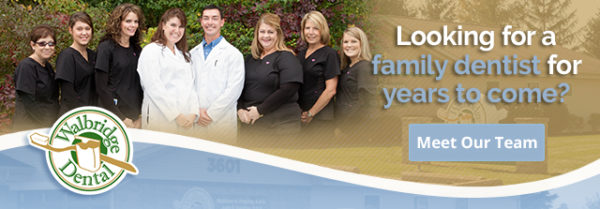
Throughout your life, you’re warned about the constant threat of cavities and tooth decay. But what is tooth decay and how does it happen? Fortunately, tooth decay is a very well-understood effect and it’s very preventable!
Read on to learn answers to the most common questions about tooth decay, including how to keep your teeth healthy and strong.
What Is Tooth Decay?
Simply put, tooth decay is any damage done to your teeth over time, versus direct trauma like a sports injury. Decay typically happens slowly, and it causes the enamel that protects your teeth to weaken. Untreated tooth decay continues to wear through the surface of your teeth until it forms a hole, known as a cavity.
Tooth decay is extremely common. Approximately 92 percent of adults ages 20 to 64 have had a dental cavity at some point in their life. Of those adults, almost 30 percent will leave this decay untreated.
What Causes Tooth Decay?
There are several things you can do that cause or exacerbate tooth decay. Poor dental hygiene, eating or drinking certain foods and other habits can all contribute. However, at its core, tooth decay is caused by these two things:
Bacteria
Bacteria in your mouth will always be the most likely cause of tooth decay. Every person has bacteria in their mouth, even if they have perfect oral hygiene. However, when you don’t brush thoroughly or skip flossing, bacteria are given a chance to consume sugars in your mouth and grow. As they digest these sugars, they leave behind waste that’s corrosive to your enamel.
Additionally, poor dental hygiene gives bacteria a chance to harden into plaque. As they harden, they become even more difficult to remove. Plaque formations can become too resilient for basic brushing or flossing, requiring your dentist to use additional tools to scrape away plaque and stop their erosion of your enamel.
Acidity
In addition to the acidity from bacteria waste, direct acidity from foods will also cause decay. The most notorious foods or drinks are things like:
- Citrus food/drinks
- Pop
- Carbonated drinks
- Wine
- Apple cider vinegar
When you eat or drink these substances, their acidity will directly damage your tooth enamel. That doesn’t mean you need to avoid them entirely! However, enjoying these foods or drinks in moderation is key.
It’s also a great idea to wash them down with a glass of water afterwards, which can help clear away a majority of the acidity. However, don’t brush your teeth right after! The acid from these will make the abrasiveness from your toothbrush cause more damage to your enamel.
What Are Common Signs of On-going Tooth Decay?
If you’re asking “what is tooth decay,” you may be concerned If symptoms you’re experiencing are related to decay. Here are some of the most common symptoms of tooth decay:
Toothaches – Pain in your teeth is often the trigger that leads people to the dentist. Toothaches can happen spontaneously, last seconds or minutes, and range in severity from discomfort to debilitating pain.
Temperature Sensitivity – Another obvious sign of decay is when your teeth become sensitive to temperatures. This can be to hot, cold or both! Temperature sensitivity pain is typically sharp, and subsides within a few seconds.
Pressure Pains – Lastly, teeth weakened by decay can become painful when used for chewing or biting. Pressure pains can also indicate a crack, so it’s important to take pressure pain seriously!
The earliest stages of tooth decay can often pass unnoticed. In fact, it’s common for those with tooth decay not to notice it on their own for weeks or months, until it’s done severe damage! That’s why it’s important to visit your dentist regularly; they can catch signs of decay well before you may identify the symptoms.
Are There Risks of Ignoring Tooth Decay?
Absolutely! Tooth decay is a problem that only gets worse with time. Bacteria left to thrive in your mouth will continue to grow and harden, weakening your enamel and spreading to your gums. The symptoms of advanced tooth decay can make it difficult to eat or drink. Toothaches can become so severe that the pain prevents you from focusing or working.
Ultimately, unchecked decay will also lead to gum disease. Like decay, gum disease worsens over time and can have devastating effects on your oral and whole-body health. Inflammation and bleeding gums are just some of the early concerns of gum disease. Long-term damage will lead to complications like losing one or more teeth!
How Can I Prevent Cavities & Tooth Decay
Don’t just ask “what is tooth decay” but also “how do I prevent tooth decay!” It’s an important part of your day-to-day life. You only have one set of permanent teeth and they need to last decades. Fighting tooth decay means you can enjoy strong and healthy teeth well into old age. Here are some tips to fight tooth decay and cavities:
Take Brushing Seriously – In addition to simply brushing twice a day, make sure you aren’t just going through the motions. Brush for a full two minutes, clean every surface you can and replace your toothbrush every 2-3 months as needed.
Flossing Is Important – Many adults admit to skipping flossing, but it’s just as important as brushing. 40% of the surfaces in your mouth can’t be reached by a toothbrush, which makes those places common areas for tooth decay. There are many different tools and techniques for flossing, find the one that works for you!
Moderate Sugar Intake – If you have a sweet tooth, this one can be a challenge. But sugars are bacteria’s favorite food, and reducing your sugar intake will help reduce how quickly bacteria can damage your teeth.
Visit Your Dentist Regularly – Tooth decay can be subtle. If you only go to the dentist when you have pain, you’ll have given tooth decay months of time to set in and do more damage. Regular dental visits help catch it early and keep you on track for a lifetime of healthy teeth.
Do You Have Dental Health Questions? Schedule an Appointment!
If you have dental health concerns or just looking for information, the professionals at Walbridge Dental provide complete family dental care to families in the Millbury community. Contact us online to set up an appointment now or call us at 419-836-1033.
Connect on Social Media!

